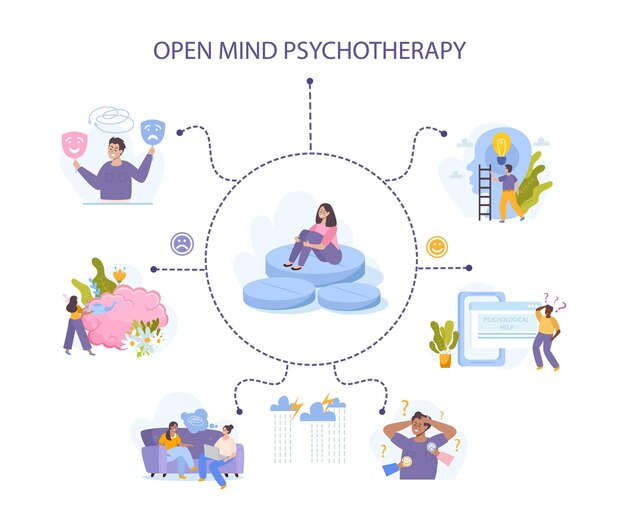In times of adversity and uncertainty, the strength of our minds becomes a vital asset. It is during these challenging moments that survival psychology, the study of mental preparedness and resilience, becomes particularly relevant. Whether facing natural disasters, personal crises, or global pandemics, our ability to navigate and overcome these trials greatly depends on our psychological fortitude.

Through this blog post, we will dig into the principles of survival psychology and explore strategies for developing mental preparedness. By understanding & grasping the power of the mind, we can truly cultivate the necessary resilience to survive as well as thrive in challenging times.
Understanding Survival Psychology
Survival psychology encompasses principles and psychological factors that contribute to our ability to endure and thrive in challenging situations. It acknowledges the significance of evolutionary instincts, prioritizing survival above all else. Our brains are wired with innate survival mechanisms like heightened vigilance & adaptability.

However, survival psychology also recognizes the impact of our mental state on our survival mindset. Managing fear and anxiety is crucial for maintaining a clear mindset. Emotional resilience, fostered through coping mechanisms, optimism, and adaptability, helps us bounce back from adversity. A positive mindset plays a vital role in enabling individuals to maintain hope, find solutions, and stay motivated during tough times.
Developing Mental Preparedness
To navigate challenging times with resilience & clarity, it is essential to develop mental preparedness. Here are some key areas to focus on when developing mental preparedness:

- Recognizing & Managing Fear & Anxiety: Anxiety & Fear are natural responses when it comes to challenging situations. But they can also hinder our capability of thinking clearly and making rational decisions. Therefore, it is important to acknowledge these emotions and develop techniques to manage and harness them effectively.
- Building Emotional Resilience: It’s the ability to bounce back from adversity and maintain a positive outlook. Building Emotional Resilience primarily involves developing coping mechanisms, such as practicing self-care and engaging in activities that bring joy & relaxation.
- Developing a Positive Mindset: A positive mindset is a powerful tool for mental preparedness. Optimism allows us to maintain hope, find creative solutions, and stay motivated despite challenges. Practice gratitude, focus on strengths and achievements, and reframe negative thoughts into positive ones.
- Enhancing Adaptability & Flexibility: In unpredictable situations, adaptability is key. Cultivate the ability to adjust and embrace change by developing a mindset that is open to new possibilities.
By actively developing these skills and strategies, we can strengthen our mental preparedness for challenging times. Remember that mental preparedness is not a one-time effort but an ongoing practice. Regularly assess your mental state, practice self-care, and continue to build your resilience. With a solid foundation of mental preparedness, you can navigate adversity with greater confidence and adaptability.
Self-Care and Stress Management
In challenging times, self-care processes & stress management are crucial for maintaining mental well-being and building resilience. Prioritizing self-care helps us recharge, manage stress levels, and navigate difficult situations with clarity and emotional balance. Stress Management & Self-Care techniques include the following:

- Establish a Self-Care Routine: Create a routine that incorporates activities promoting self-care. This may include regular exercise, practicing mindfulness or meditation, engaging in hobbies or creative outlets, spending time in nature, or simply allocating time for relaxation and self-reflection.
- Practice Stress-Reducing Techniques: Find appropriate stress-reducing methods that suit you best by experimenting. Deep breathing exercises, progressive muscle relaxation, and guided imagery are effective methods for calming the mind and releasing tension.
- Prioritize Sleep: Sleeping enough is important for both mental and physical health. By going to bed and waking up at the same time every day, you can establish a regular sleep schedule. Create a sleep-friendly environment that is cool, quiet, and free from distractions.
- Practice Self-Compassion & Set Boundaries: Set clear boundaries in your personal and professional life to prevent burnout and overwhelm. Learn to delegate tasks whenever possible and to say no to too many commitments. By treating yourself with kindness and understanding, you can demonstrate self-compassion.
Remember that self-care and stress management are individualized practices. Explore different strategies and adapt them to fit your needs and preferences. Regularly reassess your self-care routine to ensure it remains effective and fulfilling.
Wrapping It Up
In times of adversity and uncertainty, the strength of our minds becomes a vital asset. Survival psychology, which encompasses the principles of mental preparedness and resilience, plays a crucial role. It recognizes the significance of our evolutionary instincts and the impact they have on our ability to navigate challenging situations.
By managing fear and anxiety, building emotional resilience, cultivating a positive mindset, and enhancing adaptability, we can develop the mental preparedness needed to thrive in difficult times.
By establishing self-care routines, practicing stress-reducing techniques, prioritizing sleep, and setting boundaries, we can nurture our mental health and build resilience. Incorporating these strategies into our lives empowers us to face challenges with clarity and emotional balance.






